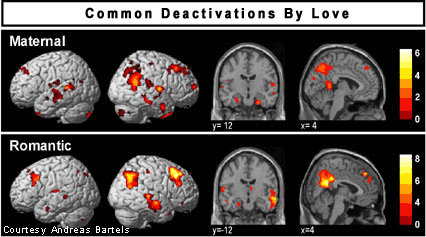The current divorce rate in North America is higher than ever at about 50%. Break ups happen all the time, and are quite frankly a part of life. Relationships are meant to be appreciated and learned from most of the time. But why are they so hard to keep from failing? Why do so many people experience failed relationship after failed relationship? What is it about the way we live as a culture that makes relationships come and go with the wind?
Break ups happen all the time and are often attributed to things like financial problems, personality differences, or boredom. I think these reasons are valid but are superficial to some much deeper problems that lie at the root of all failed relationships. The actual reasons why people break up usually elude both parties who are both unable to pinpoint what went wrong.
Here are 3 main reasons why so many relationships end up failing. Hopefully this helps improve the quality of your relationship!
1) Lack of communication and clarity

Communication is the most important thing to maintaining a healthy relationship. When you let things bottle up in a relationship (even small things) it will get stored within you. At first, it may not seem like it is impacting you very much, until it starts piling up and building up over time. By staying silent instead of saying something like “Hey could you not talk to me like that please?”, you end up holding on to how their actions affected you and end up subconsciously resenting them for hurting you.
This remains in your energy field as residual energy, and as it continues to develop over the course of several years from not being communicated properly, you end up getting “sick” of the person and no longer want to even hear from them. When you do break up from them, you feel totally relieved because you have now released yourself from the burden of carrying around all of those unexpressed thoughts and emotions. All you had to do was communicate to them exactly how you feel when you felt it, and there would be no tipping point where you would need to break things off for good.
2) Loving from the mind instead of the heart

Most people aren’t actually in love. They are in love with the idea of being loved.
In past relationships, I used to rehearse instances in my mind involving my relationship that made me feel as though I was loved. I would repeat phrases in my mind, or visualize past occurrences, and then would get that warm feeling inside. One of these past relationships lasted for a few months, and was not actually grounded in anything substantial (unless you think texting, Facebook, and Skype is substantial). I was confusing the thought of being loved with the actual experience of love. I think this is what often happens in a lot of divorce and break-up situations. People hang on to the relationship because the idea of not being loved by them is too painful to bear, or the idea of being loved feels good inside.
When someone tells you “I love you”, oxytocin and seratonin get released in the body immediately. If you keep revisiting this phrase in your mind over and over, these chemicals will be released continuously which is why you still get that same feeling days, hours, or years after the initial event. Literally, the thought-feeling of being loved is the same biochemically as actually hearing someone say it in real life. So, often times we don’t even interact with the raw boundless essence of true love, we only interact with the personal idea of being loved and the chemicals it produces. Below is image showing us what parts of the brain are deactivated by love.

We see “I love you so much!! <3? on our phone, or typed out in an email with a smiley face, and we feel good inside. We get those warm butterflies when we reflect upon it, and our brains adjust to a new state which is less fearful and more blissful. We may even think “Wow this person really loves me. I love them so much oh my gosh, finally someone who truly loves me.” This creates a superficial sensation in our energy field, a shift in our chemistry, and a sort of mood, which we attribute to the works of the true love that everybody talks about.
Most relationships don’t go past this superficial fake kind of love and into the deep soul to soul connection with another person. Both people live in their heads as their ego and interact with their partner as an idea within their thought world. When this mentally-involved love gets old or stops resulting in corresponding emotions for someone, they then figure that they have stopped loving their partner.
3) Lack of trust

If you don’t trust your partner, it is toxic to you because it gives you anxiety and pollutes your mind with thoughts of worry. It’s also toxic to your partner, who has to constantly defend themselves and try to prove their commitment over and over. If you keep experiencing lack of trust in your relationship, there is usually only 1 main reason why this is happening:
Someone is insecure. Maybe they have a history of abandonment and have been emotionally damaged. This may make them a little more needy than the average person, because they need to know that they are genuinely appreciated and loved. They will look way too deeply into little things their partner says and does and conclude that they must not love them, even though there is no problem. Their partner may begin to get annoyed and irritated, which is why this is toxic to both people involved.
It’s kind of like training really hard summer after summer to be on the basketball team. You diet properly, get proper rest, and play the game extremely well. The coach sees you take a break for a minute during tryouts and then accuses you of not wanting it enough, even though you have already proven to him that you do. You would feel both angry and hurt.
This can actually be made into something non-toxic and actually spiritually healing of they are both open and transparent about why it is they feel insecure. It may be a chance for that person to heal from their damage, and maybe their partner can work with them to talk it out and build them back up. When people say things like “B*tches be crazy”, when they really mean is “My girlfriend is insecure and doesn’t know how to reach out for reassurance. I am either not making her feel loved enough, or she has defense systems in place from past relationships to protect her from getting hurt”.
What lack of trust usually means is that someone doesn’t trust themselves with the ability to go through the pain if the relationship were to end. They ultimately lack self-trust and the confidence that they can deal with the emotional weight of an ending. Once again, this needs to be openly communicated or else it will continue to be corrosive for both parties involved.
All of these reasons ultimately have to do with honesty with ourselves and with our partners. If we are brave enough to be vulnerable and transparent, relationships are much less of a mental headache and more of a spiritual/emotional journey.

